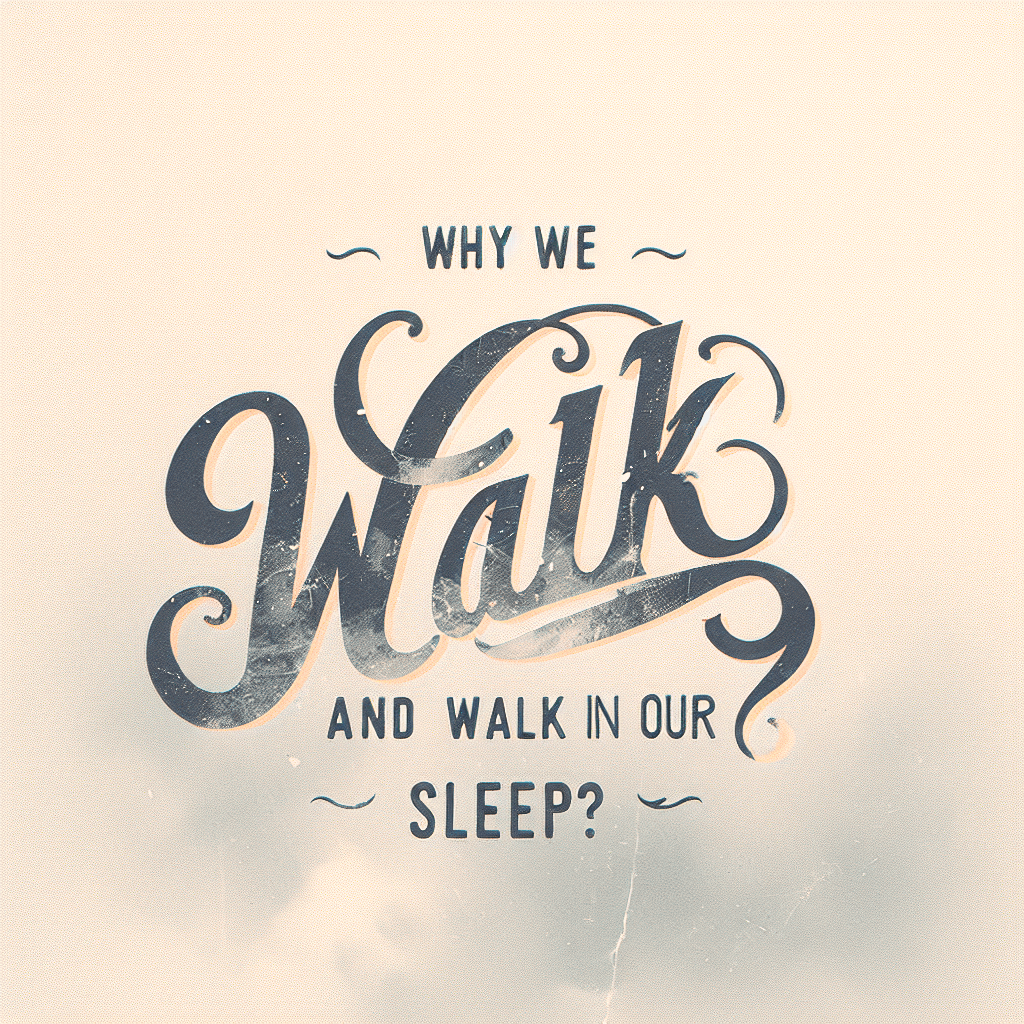
Sometimes you wake up and find yourself standing into your living room and think how did you got here? Or your roommates tells you about strange conversations you've had in your sleep. Sleepwalking and Sleep talking are fun topics to talk about, but they also worry us to think seriously about these issues.Why do people walk or talk while sleeping? What is going on in our brains that could cause this? Lets Dive into Dream Talking and Walking Analysis.
Science of Sleep
First , Lets try to Understand the stages of sleep. Actually Sleep occur in different phases and can be divided into two categories; Non-Rapid Eye Movement (NREM) and Rapid Eye Movement (REM).
NREM Sleep: This is a four-stage phase that ranges from light sleep to deep sleep. Stages 3 and 4 are also called, deep or slow wave sleep.
REM Sleep: In this phase dreaming takes place, but even though the body is almost completely paralyzed, the brain remains highly active.
Sleep Talking and Sleepwalking Baics:
sleep talking refers to a situation whereby someone speaks in his/her sleep without being conscious about what he/she says. They range from utterances and nonsense sounds to complete monologues. In other words, Somnambulism or rather sleep walking happens when you get up and walk while still sleeping. These are parasomnias involving conditions such as those mentioned above which disrupt an individual’s slumber during either REM (Rapid eye movement) phase awakenings or non-REM arousals at times.
Why Do We Do Sleep Walk or Talk?
The exact reasons why people talk or walk in their sleep aren’t fully understood, but there are a few theories. One idea is that it’s related to the brain remaining partially active during sleep. During our sleep time, our brain exposes us to various stages including REM and non-REM sleep. Our mind still functions during these moments even as we process information and consolidate memories. In some instances speech can be mistakenly thought of as walking due to this fact.
Dreams’ Role in Sleep Walking and Talking
Dreams have a big play in sleeping and talking during it. Our brains work very hard at night when we experience dream state on Rapid Eye Movement (REM) stage. A lively dream full of running away or discussing things can easily lead to one talking in their slumber or moving around while asleep. Instead, sleepwalking usually happens in the deeper stages of non-REM sleep indicating that it may not always be connected directly with dreams.
Who’s Affected?
Sleepwalking and sleep talking are more frequent in children than adults. It has been reported by National Sleep Foundation that 17 percent of all kids do sleepwalk while only four percent of the grownups sleepwalk. Moreover, more children are affected by somniloquy whereby about fifty percent of them talk while sleeping compared to five percent of adults who manifest the same condition at some point in their lives.
Triggers and Risk Factors
There are several things which may be factors that will contribute to a person being prone to experiencing sleep talking and sleepwalking:
Genetics: Most Likely you Inherited from someone of your family , If you have family history of sleeping disorders, then it is likely that you may experience the same.
Lack of Sleep: when you do not get adequate sleep. you can make your brain more prone to these issues
Mental and Emotional Problems: Sleeping patterns can be the reason of having high levels of stress or anxiety.
Medicines: Some drugs especially those that affect the CNS might increase the risk.
Alcohol and Substance Use: These substances interrupt your sleeping cycles leading to parasomnias.
When to Worry?
Most people do not need any treatment for their occasional episodes of somniloquy or somnambulism. But when such behaviors become recurrent, severe or dangerous (such as leaving home during sleep), one should seek medical advice from qualified personnel. They would then probably recommend you undergo a sleep study in order for them to better understand what might be going on as well as suggest strategies (Source : National Sleep Foundation).
Cures
Slumber Walking and Slumber Talking Management
Develop a Safe Place: You should ensure none of the dangers are available in order to avoid accident.
Keep Steady Sleep Routine: Following a pattern may help in decreasing those cases.
Scale Down Anxiety: One can use techniques such as meditation and deep breathing to reduce anxiety levels.
Professional Assistance is Required: In case sleepwalking or sleeptalking becomes serious, pay a visit to a specialist on sleeping disorders for advice and treatment options.
Few Tips to sleep better
If you or anyone you know has been experiencing sleep talking or sleep walking during sleep,
here are some Few Tips to sleep better:
Maintain Regular Sleep Hours: Go to bed at the same time every night and get up in the morning at the same time too.
Do calming activities as part of your bedtime routine: Take it easy with reading stuff or soaking yourself in hot water.
Minimize Disturbances: Not taking alcohol or caffeine near bedtime
Make Sure Your Sleeping Environment Is Protected: Remove all barriers and hazards that may cause harm when they strike during slumber walking episode.
Conclusion
Sleep talking and sleep walking are fascinating glimpses into the complexity of our minds and the mysteries of sleep. Although these conditions might be somewhat unnerving, generally they have nothing to fret over. By understanding what causes them, along with adopting certain measures aimed at improving your sleep routines, they will always bring more peaceful nights’ rest than many midnights do.
Have a Sweet Dream! Thanks for Reading
Visit Questmist.com regularly for deeper articles on dream Analysis and dont forget to join our dream sharing community , you can share and explore others dreams

You must be logged in to post a comment. Please Login or Register .